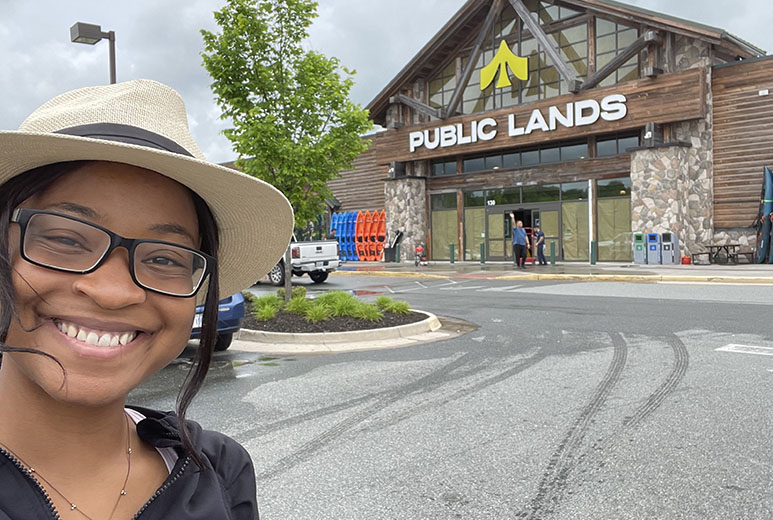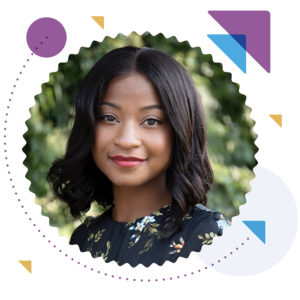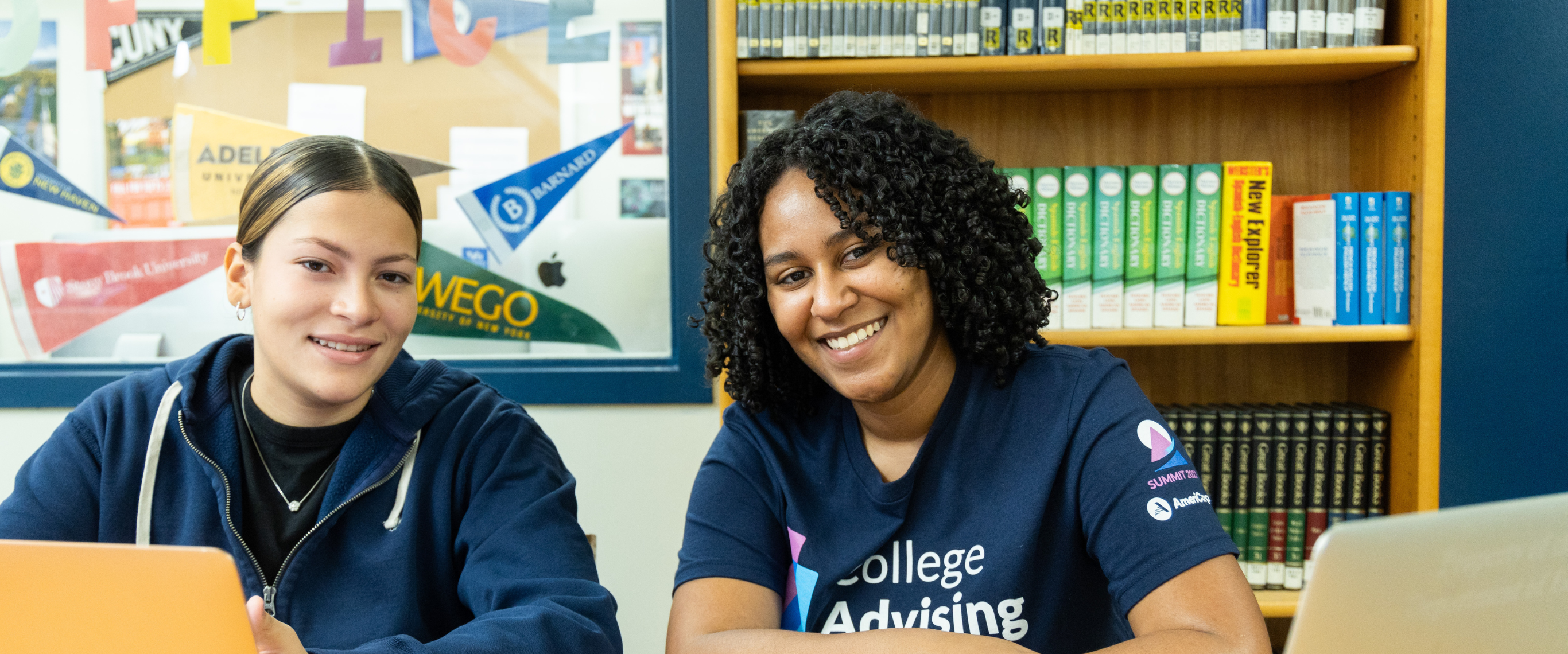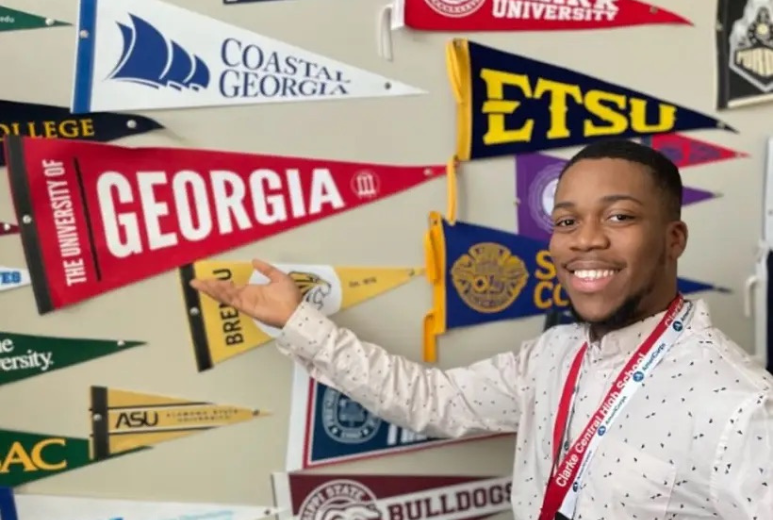Brittany Coleman

Brittany Coleman grew up in Las Vegas. For the better part of her childhood, she was the youngest of four kids. That all changed, however, when she turned 16 and a baby brother was introduced to the family.
In my early years, we moved around a lot. At times, we were homeless. —Brittany Coleman
When she was 10 years old, Brittany’s family moved into a shelter. Soon after, they joined a church. Brittany says that’s when she began—for the first time—to experience some consistency in her life. With the encouragement and support of staff at the shelter, leaders in her church, and faculty at her high school, she acquired the self-confidence and belief she needed to apply for college. Brittany received her bachelor’s degree in public policy and French from Duke University in 2013 and her master’s degree in business management from Wake Forest University School of Business in 2016. Brittany joined College Advising Corps as an adviser in 2014, serving students attending an under-resourced high school in rural North Carolina.
 How did you hear about College Advising Corps and what compelled you to apply?
How did you hear about College Advising Corps and what compelled you to apply?
College Advising Corps at Duke University launched the year after I graduated from college. Even after graduation I was still very plugged into the Duke community and heard about it through the alumni network. It was right up my alley.
What was the most challenging aspect of serving as a CAC adviser?
It can be challenging for someone just out of college to figure out how to work across multiple generations and systems. We join at a young age because we can better relate to students since we were them just four years prior. However, near-peer advisers have to work with many individuals, including school administrators, faculty, counselors, and fellow advisers. It was a little challenging to find my place at first. There were several times when I was told to leave the hall and go to class; I had to remind the hall monitor that no, I do indeed work here!
What was most rewarding as it relates to your service?
I had several students—some of whom would not give me the time of day in class—say thank you months later after I completed my service. This confirmed for me that one never knows what a student is absorbing and when the impact will occur.
Where has life and career taken you since your time with CAC?
I have done so many things since leaving College Advising Corps! I went to business school and then worked for a fortune 500 company. I later worked in technology partnerships supporting B2B sales motions. Today, I am the founder and CEO of Tough Cutie, a line of women’s hiking socks. After working in the basic apparel industry, I decided to design and market women’s socks and legwear. I started Tough Cutie as a way to both literally, and figuratively, support women in our walk-through life—as adventurers, entrepreneurs, caregivers, and everything in between. Tough Cutie exists to support women from the ground up and increase diversity in the outdoors.
How has your service with CAC helped propel or inform your career?
I have never forgotten the importance of service to others. Today, I unite my passion for service with my career. Many people think that working in the non-profit space on a particular cause that is meaningful to you is the only way to have an impact. They think that after you complete your service work—whether it be with College Advising Corps, the Peace Corps, or some other program—you’re done, and now it’s time to find a “real” job. That’s not true. You can work in business, in a for-profit space, and still, do good and make an impact. That is what Tough Cutie is all about. Yes, we want to sell socks, but more than that, we want to accomplish it in the most sustainable way possible. We want the outdoors to be an equitable place for women and people of color. And we want women to be supported in all the shoes we will fill as athletes, entrepreneurs, caregivers, college grads, and everything in between.
What do you hope to be doing 10 years from now?
Oh man, I gave up trying to predict the future a long time ago. It’s the byproduct of owning your own business and being in a constant state of suspension. But whatever it is, I hope that it brings me and others joy.
If you could share just one bit of advice with our incoming advisers, what would that be?
Be both patient and consistent—that is how you are going to develop trust with both your students and colleagues. It’s how you will ultimately have the biggest impact. It’s not about being perfect 100% of the time, but just continuing to show up. People appreciate that.
If you are a College Advising Corps alum and would be willing to share your experience serving as an adviser, please contact Karen E. Butler, Sr. Director of Communications. If you are a recent or soon-to-be college graduate and interested in learning more about serving, visit Become An Adviser.


